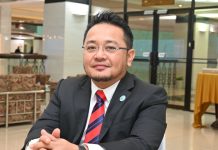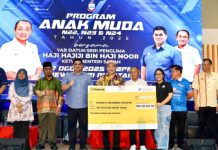KUALA LUMPUR: In this extraordinary trying time of a national crisis, the government should encourage non-governmental organisations (NGOs), including those that were not welfare-oriented, to come forward to assist the needy and the underprivileged, instead of barring them from doing so, said Tan Sri T.C Goh, president of The Federation of Chinese Associations Malaysia (Huazong).
“The NGOs should be allowed to distribute food and essential items to these groups of people without the escort of the RELA (The People’s Volunteer Corps) or the Malaysia Civil Defense Force (MCDF), unless they involve some remote places with challenging terrain,” he said in a press release issued here on Thursday.
He thus hoped the government could further relax the conditions for the NGOs to deliver aid directly to the needy during the Movement Control Order (MCO) period.
He suggested this while responding to the news report that, following vociferous opposition from NGOs, the government has softened its stance on barring them from doing so during the MCO period.
He said, feedback gathered from many NGOs indicated that currently there are many poor and underprivileged people out there, including daily wage earners who have no source of income after the MCO came into effect on March 18, and are desperately in need of help to survive the Covid-19 pandemic.
Recognising such a pressing situation, Huazong had recently initiated a nationwide fundraising campaign enlisting its member associations to raise funds to assist those who are in dire need of help, as well as to purchase Personal Protective Equipments (PPEs) and other essentials items for personnel who are fighting Covid-19 outbreak in the frontlines. Some of its member associations like the Perak Chinese Assembly Hall has reached out to some vegetable farmers and suppliers to purchase vegetables from them at a special rate. These vegetables are then distributed to the underprivileged and vulnerable groups through the elected representatives.
Goh who is also the president of The Federation of Chinese Associations Sabah (FCAS) noted that FCAS too has in the last one week provided some assistance to frontliners who were in need of help.
“There are many NGOs including those who are not welfare-oriented religious organizations out there who are more than willing to come forward to assist those underprivileged and needy people.
“We believed their involvement could significantly help ease the government’s burden at the same time ensuring those in need of help getting the much-needed relief in this extremely difficult time. Hence, the government should give them encouragement and full support, instead of discouraging them,” he contended.
Goh however agreed with the Ministry that the NGOs must adhere to such conditions like requiring their officials and volunteers to take body temperature, wearing face mask, to equip themselves with hand sanitisers and to practice social distancing, while distributing food and essential items to the needy and the underprivileged.
The Women and Family Ministry on Thursday announced new guidelines for NGOs to distribute food and essential items to the homeless and the needy.
Its minister, Datuk Seri Rina Harun, said the NGOs must adhere to SOP following the National Security Council’s orders as stipulated under Section 5 of the Prevention and Control of Infectious Diseases Act 1988 (Act 342).
She said the SOP was only for NGOs that were welfare-oriented. They are allowed to distribute only food and dry goods and must adhere to the conditions.-pr/BNN





